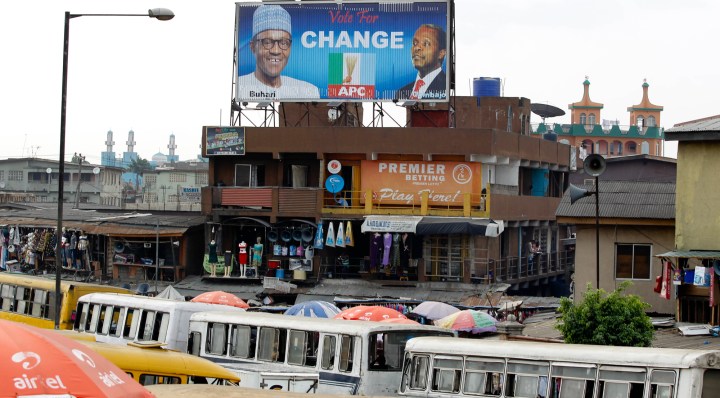OP-ED
Don’t wrestle with Lagos: How to navigate the business labyrinth that is Africa’s largest city

Few sentences invoke as visceral a response as: ‘You’re going to Lagos next week.’ Ranked as the second-worst place to live in the world after war-torn Damascus, the city doesn’t have the best reputation. But, as residents and travellers alike will note, you’re missing out on something if you haven’t been to Lagos. As Africa’s largest city, Lagos cannot be ignored in any discussion of the continent’s urban and economic future.
Lagos is vibrant and marked by the dynamic hustle and unparalleled energy. It welcomes more than 2,000 new residents every day and 86 an hour, making it one of the continent’s fastest-growing cities. With its population estimated at somewhere between 17 and 23 million people, Lagos provides the unique opportunity to access about 20 million consumers in a 999.6km² area.
In 2015, Lagos had a projected GDP of $90-billion, making it the continent’s seventh-largest economy. Governor Akinwunmi Ambode believes it could be Africa’s third-largest economy by 2020.
The city’s economic growth has to keep pace with its population growth, a feat that would mean dealing with the friction that accompanies daily life and transactions. As one Lagos investor noted:
“In Lagos getting three out of the 10 things on your to-do list done is an achievement.”
This friction can be traced to the following:
Opaque regulatory environment
The process of the parallel informal economy in Lagos is often clearer, cheaper and more efficient than official procedures. A key example of this is changing money in the city. During our research, the average exchange rate was about 350 Naira to the dollar. However, when we tried to change our money at a hotel front desk, the given rate was set at 305 Naira. If the concierge called a Mallam we were quoted at least 340 Naira to the dollar, making the parallel market the obvious choice for someone hoping to get their money’s worth.
Poor transportation networks
Travel and business in Lagos are often organised around whether it will be possible to cross one of the mainland bridges at that time of day. After 3.30pm, crossing the third Mainland bridge towards Ikeja becomes a game of chance and prayers. Lagosians spend an average of four hours on the road each day, and a total of three billion hours a year in traffic, costing the city billions of dollars.
Insufficient power
Lagos by night is a well-lit city, especially since the recent campaign by the state to “Light Up Lagos”. However, most electricity in the city is privately generated through off-grid diesel generators. Lagos has a power deficit of at least 9,000MW and this is felt through the high cost of even the most basic of goods. The majority of businesses and households rely on generators driving up the cost of production for all goods manufactured in the city and its periphery.
Overcrowding
The perceived chaos of Lagos is in part due to its large population, but mostly due to the fact that at present there is no overarching policy on how to create a liveable city for its 23 million residents. The city faces significant challenges in providing basic services such as sanitation and waste management equitably to all its citizens.
Local government officials will tell you they have a plan that can resolve the city’s issues in the next six months. Long-term residents, however, will assure you that very few of these plans deliver. As a result, most learn how to work with the grain of the city rather than wait for it to change.
While the size of Lagos’s official economy is impressive, the city possesses a robust informal economy. In 2013, it was estimated at $48.2-billion, and created the nimble responses that allowed the city to weather Nigeria’s most recent economic downturn.
Lagos is Nigeria’s manufacturing hub and benefits from the agglomeration effects of having 54% of Nigeria’s manufacturing activities and more than 50% of Nigeria’s non-oil industries. This creates a magnet for skilled human capital within Nigeria as well as from the rest of the Ecowas region.
Lagos can often feel chaotic and disorganised; some of the best advice I received during my first trip to the city was:
“If there’s something in Lagos that doesn’t seem to make sense, a project or problem that could be easily fixed but isn’t… just wait, because in time it will become apparent who is benefiting from the way things are.”
Understanding that the perceived chaos of Lagos is actually a complex web of competing interests would serve any business traveller well.
As the first port of entry for many international organisations trying to establish themselves in the Nigerian market, Lagos is both the promised land and the graveyard of failed attempts. One needs to look no further than the examples of Shoprite and Woolworths. Woolworths entered the market in 2011 with plans to expand widely into the rest of Nigeria, and left cap-in-hand in 2013. Shoprite entered in 2005 and has steadily grown since reporting a remarkable 60% increase in Nigerian revenue for 2016.
Companies that have done well in Lagos are those that have been able to capture the opportunities provided by having 20 million people in a relatively small land mass. These firms have acknowledged and engaged with the complexity of the market and created ways to work within taxing regulatory and infrastructural constraints.
Companies that have failed have approached the city believing their previous experience would be sufficient to wrestle the behemoth that is Lagos. But as many a traveller will tell you, Lagos always wins. DM
Nchimunya Hamukoma leads research for the Brenthurst Foundation’s Future of African Cities project. This piece is based on a longer discussion paper available at http://www.thebrenthurstfoundation.org.



















 Become an Insider
Become an Insider